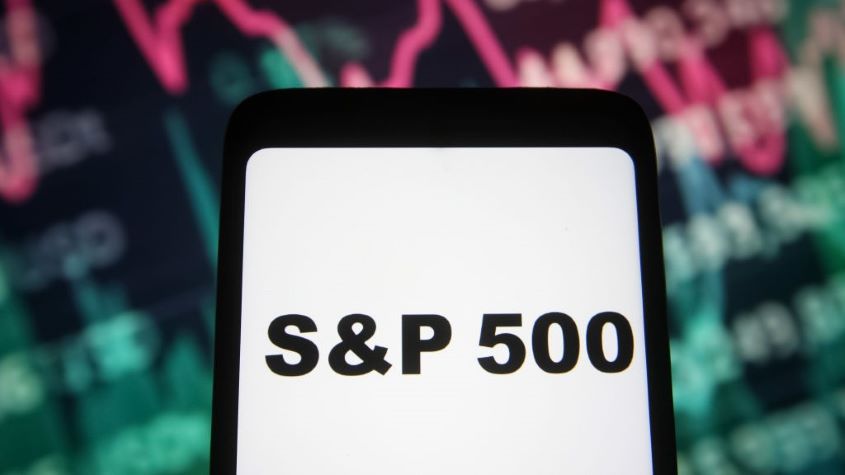Get the latest financial news, insights and expert analysis from our award-winning MoneyWeek team, to help you understand what really matters when it comes to your finances.
You are now subscribed
Your newsletter sign-up was successful
Want to add more newsletters?

Twice daily
MoneyWeek
Get the latest financial news, insights and expert analysis from our award-winning MoneyWeek team, to help you understand what really matters when it comes to your finances.

Four times a week
Look After My Bills
Sign up to our free money-saving newsletter, filled with the latest news and expert advice to help you find the best tips and deals for managing your bills. Start saving today!
The Chicago Board Options Exchange (CBOE) Volatility index (Vix for short) was created in 1992 by finance professor Robert Whaley, based on the academic work of Menachem Brenner and Dan Galai.
The Vix is calculated using the weighted average prices of various options on the S&P 500 index. Options give buyers the right (but not the obligation, hence the name) to buy ("call") or sell ("put") the index at a certain price. So they can be used to bet on the market moving in one direction, or to "hedge" a portfolio against short-term adverse moves.
One factor affecting option prices is the expected level of volatility (the more volatile the market, the more likely it is that the option will end up "in the money" ie, worth something). So the Vix reflects how volatile traders expect the market to be over the coming year broadly speaking, above 30 represents high volatility, while below 20 suggests calm.
MoneyWeek
Subscribe to MoneyWeek today and get your first six magazine issues absolutely FREE

Sign up to Money Morning
Don't miss the latest investment and personal finances news, market analysis, plus money-saving tips with our free twice-daily newsletter
Don't miss the latest investment and personal finances news, market analysis, plus money-saving tips with our free twice-daily newsletter
Some argue that the Vix works well as a contrarian indicator a low Vix indicates that traders expect calm conditions to continue, and are thus overly complacent, suggesting that stocks should fall (leading to the nickname, "the fear gauge"). However, most studies have shown the Vix to be a coincident indicator (ie, it shows what's happening right now) rather than any use as a forecasting tool, contrarian or otherwise.
Equally, the Vix can rise alongside stocks sharp moves can happen to the upside as well as the downside. One problem with trying to trade the Vix is that exchange-traded products that are "long" the Vix tend to lose money over time, because of the cost of "rolling over" the underlying futures contracts on which they are built. This is one reason why shorting the Vix has become so popular. However, this carries its own risks, which will only become ever more important as less experienced traders pile in.
Get the latest financial news, insights and expert analysis from our award-winning MoneyWeek team, to help you understand what really matters when it comes to your finances.
MoneyWeek is written by a team of experienced and award-winning journalists, plus expert columnists. As well as daily digital news and features, MoneyWeek also publishes a weekly magazine, covering investing and personal finance. From share tips, pensions, gold to practical investment tips - we provide a round-up to help you make money and keep it.
-
 Should you buy an active ETF?
Should you buy an active ETF?ETFs are often mischaracterised as passive products, but they can be a convenient way to add active management to your portfolio
-
 Power up your pension before 5 April – easy ways to save before the tax year end
Power up your pension before 5 April – easy ways to save before the tax year endWith the end of the tax year looming, pension savers currently have a window to review and maximise what’s going into their retirement funds – we look at how
-
Index provider
Glossary Stockmarket indices such as the FTSE 100 play a huge role in investment. But where do they come from and who maintains them?
-
Currency risk
Glossary This is the type of risk that comes from the change in price of one currency against another...
-
Index fund
Glossary Index funds (also known as passive funds or "trackers") aim to track the performance of a particular index, such as the FTSE 100 or S&P 500.
-
Indices
Glossary There are indices for every sort of market, but retail investors are probably most familiar with those related to stock markets.
-
Low volatility
Glossary Low volatility – or “low vol” – investing means buying shares (or bonds) that tend to go up or down in price by less than the overall market (in other words, they’re less volatile).
-
Q ratio
Glossary The Q ratio, or Tobin's Q, can be a reliable measure of stockmarket value.
-
 S&P 500 index
S&P 500 indexGlossary The S&P 500 index is one of the most widely tracked stock market indices in the world. Here’s a rundown of the index and why it’s so important

